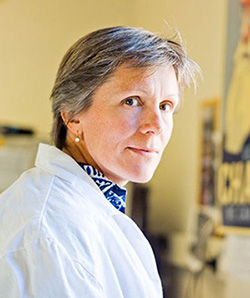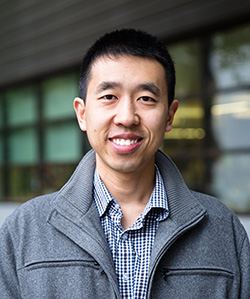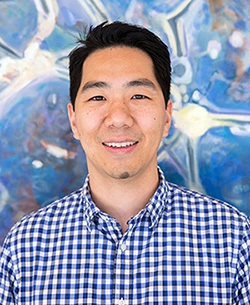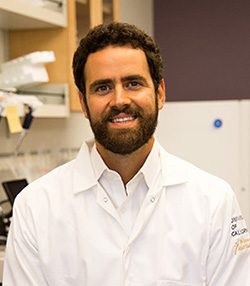Campus News
Local cancer charity group funds four cancer researchers at UC Santa Cruz
The Santa Cruz Cancer Benefit Group has given more than $450,000 in grants to the campus since 2005.




The Santa Cruz Cancer Benefit Group (SCCBG), a local charity supporting cancer research and patient care, has awarded grants of $12,500 each to four researchers at UC Santa Cruz: Lindsay Hinck, professor of molecular, cell, and developmental biology; Zhu Wang, assistant professor of molecular, cell, and developmental biology; Daniel Kim, assistant professor of biomolecular engineering; and Nikolaos Sgourakis, assistant professor of chemistry and biochemistry.
The SCCBG has given more than $450,000 in grants to the campus since 2005. In the past, pilot projects funded by these small grants from SCCBG have enabled UCSC faculty to obtain preliminary results that led to much larger grants from the National Institutes of Health and other fundraising agencies.
Lindsay Hinck’s lab is studying how breast cancer develops resistance to standard anti-estrogen therapies like Tamoxifen, which is used against breast cancer cells that are positive for estrogen receptors. Resistance to anti-estrogen therapies has been associated with increased expression of a gene called Notch4. Hinck’s lab is studying a cell signaling pathway involved in regulating this gene. Funds from the grant will support the preparation of specialized cell lines to study the relationship between this signaling pathway and treatment resistance in breast cancer.
Zhu Wang’s lab is working to improve the understanding of bladder cancer progression by developing novel genetically-engineered mouse models. Building upon methods developed under a previous SCCBG grant, Zhu will now investigate the interplay of the top-ranked mutated genes identified in the Cancer Genome Atlas program’s bladder cancer project. His lab wants to identify the gene mutations responsible for giving rise to different subtypes of bladder cancer. This may help clinicians identify which treatments are most effective against different types of bladder cancer.
Daniel Kim’s lab investigates the newly discovered “dark matter” in our genome known as long noncoding RNAs, produced by a highly abundant class of genes that do not make proteins. Many of these novel RNAs are only turned on in cancer cells. This grant will allow Kim’s lab to leverage the unique properties of RNA dark matter to detect signatures of cancer in the blood, using a state-of-the-art genomic platform called nanopore sequencing. These studies will develop non-invasive and highly specific liquid biopsy approaches for the early detection of lung cancer, when it is most curable.
Nikolaos Sgourakis is working to characterize novel targets on neuroblastoma tumors, a type of cancer that affects the development of the sympathetic nervous system in early infants and young children under the age of 10. Because neuroblastoma spreads quickly through the body, the survival rate is less than 50 percent and relapse is common in survivors. The grant will support the Sgourakis lab’s research on a class of proteins displayed by tumor cells for immune surveillance by cytotoxic T cells, which can then eliminate the tumor. This research could lead to the development of personalized immune therapies for patients with neuroblastoma.
The SCCBG holds several annual events to raise funds for the programs it supports. More information is available on the SCCBG web site.